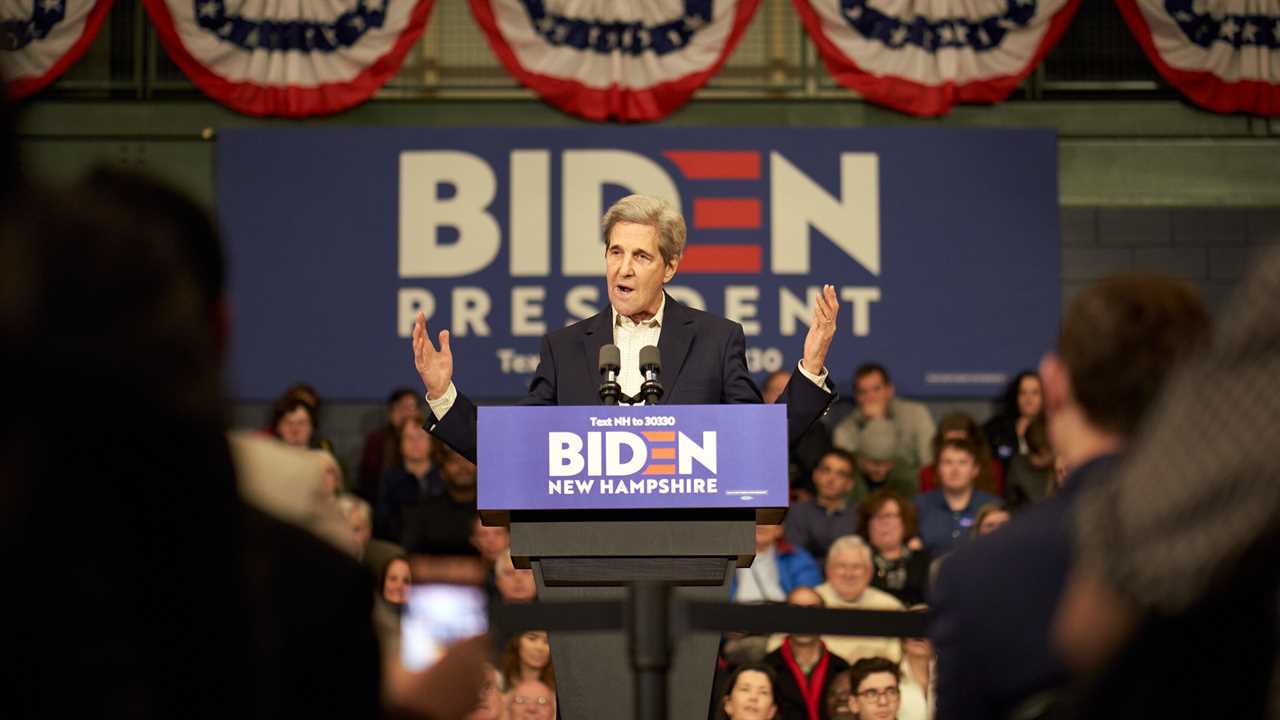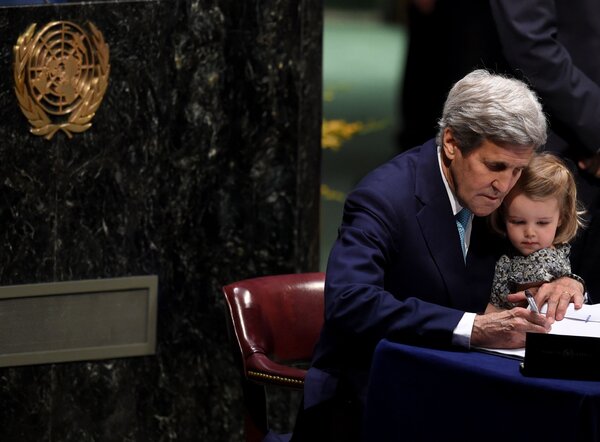
WASHINGTON — When John Kerry served as President Barack Obama’s secretary of state, he helped steer the negotiation of the Paris Agreement, locking down commitments from nearly 200 nations — including his own — to begin to reverse the dangerous warming of the planet.
Now his diplomatic task may be even tougher.
On Monday, president-elect Joseph R. Biden Jr. said he intended to name Mr. Kerry his special presidential envoy for climate, a cabinet-level position in the new administration. In that role, Mr. Kerry will need to persuade skeptical global leaders, burned by the Trump administration’s hostility toward climate science, that the United States is prepared to resume its leadership role — and will stay the course, regardless of the Biden administration’s future.
Those who know him best say Mr. Kerry is well suited to the role. He has been advocating for action on climate change since he attended the first Rio Earth Summit in 1992, where the framework of United Nations climate talks was formed.
He also knows the struggle of persuading his own country to take action, having co-authored climate change legislation as a Massachusetts senator that ultimately failed. Then, after joining the Obama administration, he made climate change a core part of the State Department.
The appointment of Mr. Kerry to sit on the National Security Council as a climate envoy elevates the issue of climate change to the highest echelons of government and marks it as an urgent national security threat. “America will soon have a government that treats the climate crisis as the urgent national security threat that it is,” Mr. Kerry said in a statement.
In naming Mr. Kerry Mr. Biden has tapped the biggest name in his government so far, a veteran politician adept at drawing attention to himself and his causes since he led opposition to the Vietnam War as a decorated young veteran. “John Kerry brings unmatched stature, a record of being an effective, tireless and indefatigable negotiator, a record of profound commitment to this issue and an understanding of just what the speed and scale of the transformation needs to be,” said Todd S. Stern, who served as the State Department’s climate envoy under Mr. Obama.

As special presidential envoy for climate, Mr. Kerry will participate in ministerial-level meetings with a cabinet rank. He will not have to face Senate confirmation, according to Mr. Biden’s transition team.
The move marks the first time the National Security Council will include an official dedicated to climate change, “reflecting the president-elect’s commitment to addressing climate change as an urgent national security issue,” the transition team said in a statement.
“It’s an unusual sign, and certainly one that will grab everybody’s attention internationally. Every government from China to the E.U. to India is going to sit up go, ‘Wow,’” Mr. Stern said.
Paul Bodnar, managing director at the Rocky Mountain Institute, which works on climate policy, and who served on the climate change negotiating team under Secretary Kerry, called him a “dream choice for this kind of role” and “a powerful signal of the importance of climate to the incoming administration.”
Mr. Bodnar described Mr. Kerry as someone who “does the homework” on policy even as he works the room as a negotiator. During the Paris climate talks in 2015, he recalled, Mr. Kerry “almost alone among climate ‘ministers’ from other countries, spent the better part of two weeks roaming the halls of the giant conference center day and night, listening and advocating, getting into the details.”
Democratic administrations in the United States have a history of joining climate pacts like the Paris Agreement (and before that, the 1997 Kyoto Protocol) only for them to be abandoned by subsequent Republican presidents. Restoring U.S. credibility once again will be a challenge, but several international leaders said they are eager to see Washington back at the table.
“I think the rest of the world will welcome the U.S. under Biden and Kerry with open arms and huge relief,” said Saleem Huq, director of the Bangladesh-based International Centre for Climate Change and Development, who works closely with the poorest and most vulnerable countries.
According to Mr. Biden’s transition team, the president-elect also will name in December a White House climate policy coordinator who will help streamline domestic climate change policies throughout the various federal agencies.






